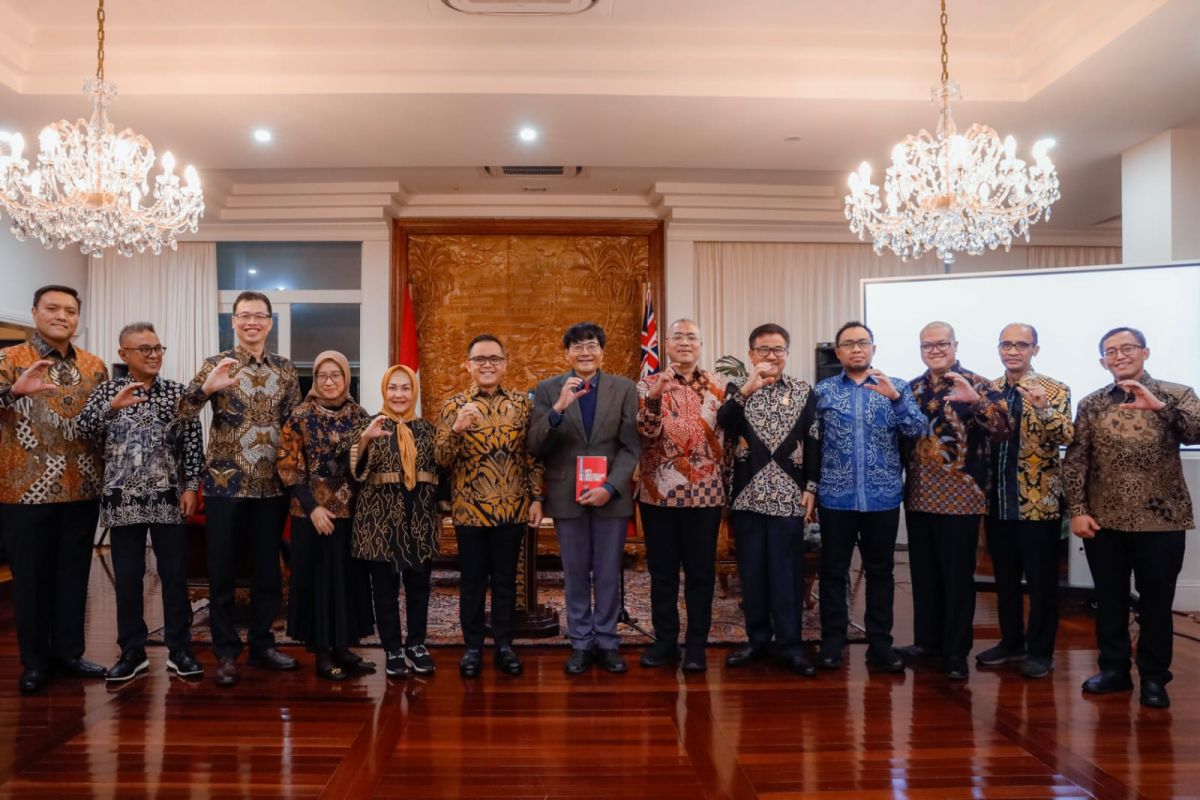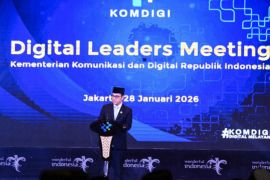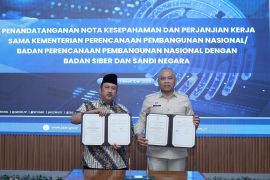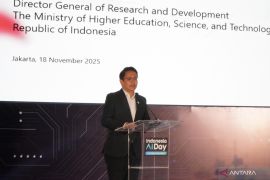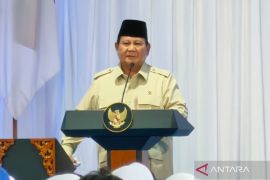"This (digital transformation) is being implemented to provide people with an easier access to public services while adapting to their varied needs," he noted in a written statement received in Jakarta on Tuesday.
Minister Anas remarked that the embassy constituted the governmental unit closest to Indonesian citizens in Australia since the services it offers are directly related to the need of citizens.
"Hence, we would like to encourage KBRI to ensure that the services offered meet the expectations of the Indonesian citizens," he noted in the presence of Indonesian Ambassador to Australia Siswo Pramono during his visit to the KBRI on Monday (October 16).
The government is currently promoting the implementation of the Electronic-Based Government System (SPBE), he said, adding that such a system is aimed at integrating and interconnecting all bureaucratic digital applications.
"It is necessary to accelerate the realization of digital transformation through the implementation of SPBE by optimizing Prospera (Australia-Indonesia Partnership for Economic Development) and other means," he remarked.
Anas also reiterated that President Joko Widodo had called for impactful bureaucratic reform to provide the people with agile and swift bureaucratic services.
"Let us imagine bureaucracy as a component of a vehicle. In this context, bureaucracy is the engine that makes the vehicle move. As an engine, bureaucracy should remain in its prime condition, so it can push the vehicle toward its destinations," he elaborated.
To conduct digital transformation in Indonesia, the government has issued several regulations, including Presidential Regulation (Perpres) No.95 of 2018 concerning SPBE and Perpres No. 13 of 2022 regarding the architecture of national SPBE.
"These regulations serve as the manifestations of the Indonesian government's commitment to accelerating the integration of business processes, data and information, infrastructure for information and communication technology, applications, and information security, with the objective of making improvements in public services," he remarked.
The government is taking a double-track approach to succeed in reforming Indonesian bureaucracy. The first track concerns general bureaucratic reform aimed at enhancing accountability and efficiency, while the other track is related to thematic bureaucratic reform.
By conducting thematic bureaucratic reform, the government seeks to alleviate poverty, draw more investments, control the inflation rate, and increase the government's spending on domestic products.
Related news: Collaboration with ANTARA important for PAN-RB Ministry: Anas
Related news: Minister Anas discusses SPBE digital transformation with Australia
Translator: Fauzi, Tegar Nurfitra
Editor: Rahmad Nasution
Copyright © ANTARA 2023
